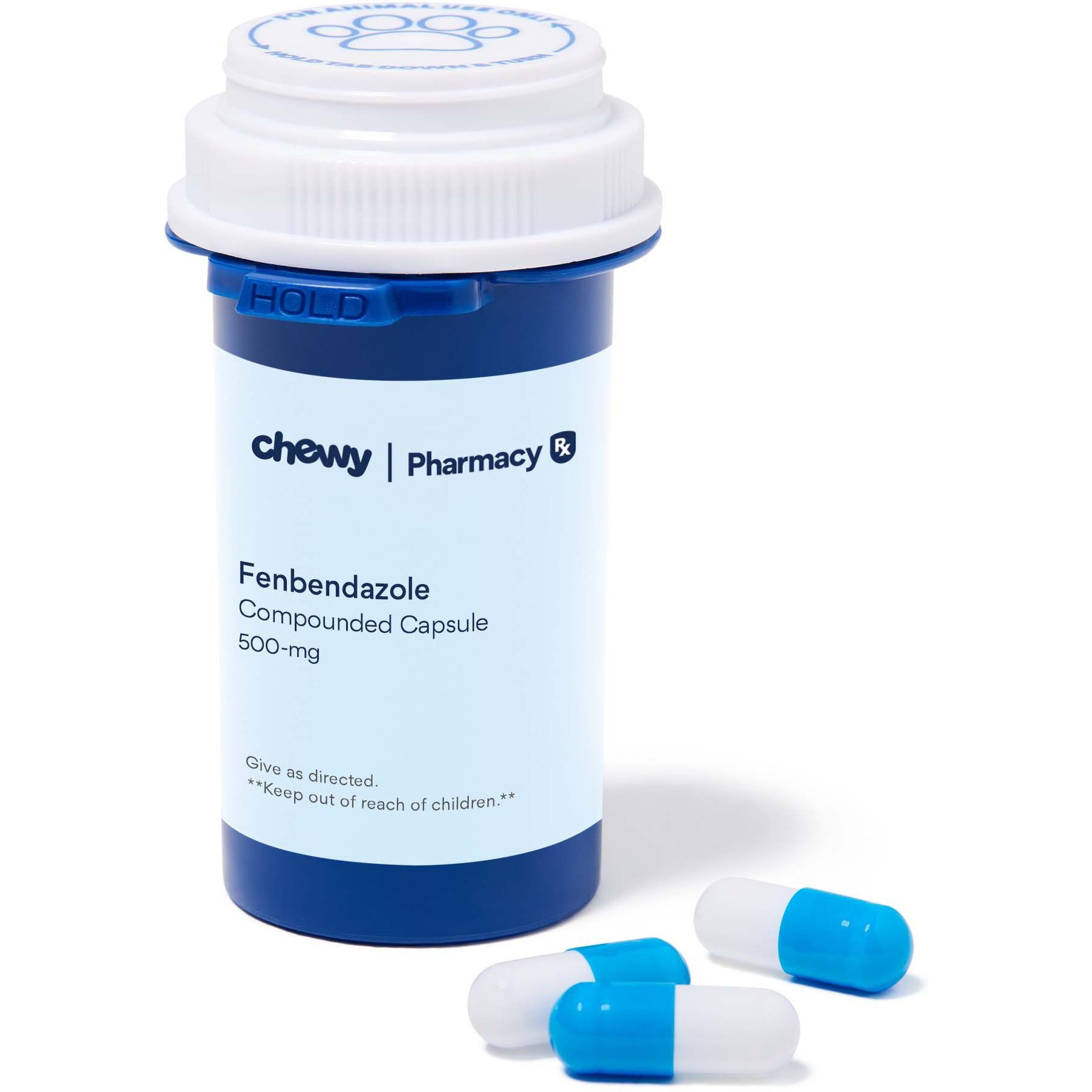Comprehending the Conveniences and Uses of Fenbendazole in Vet Medicine
Fenbendazole has developed itself as a crucial anthelmintic in vet medication. Its capability to target numerous parasitical infections makes it an important tool for vets. The medicine's mechanism interrupts crucial mobile procedures in bloodsuckers, leading to effective treatment outcomes. Its safety profile differs in between varieties, necessitating careful consideration in its use (fenbendazole). Comprehending these characteristics can clarify fenbendazole's wider ramifications in vet treatment and continuous study right into its potential beyond conventional applications
System of Action of Fenbendazole

Typical Parasitic Infections Dealt With With Fenbendazole
A variety of parasitical infections are efficiently treated with fenbendazole, making it a functional alternative in veterinary medication. This anthelmintic agent is particularly reliable against nematodes, including roundworms and hookworms, which generally impact pets and felines. It is additionally utilized for the therapy of cestodes, such as tapeworms, providing a wide range of activity versus both sorts of digestive tract bloodsuckers. Furthermore, fenbendazole is valuable in managing infections brought on by protozoa, particularly Giardia, which can cause stomach distress in pets. Its efficiency includes treating specific lungworms in canines and felines, dealing with respiratory system health problems connected to these parasites. In general, fenbendazole's capability to target numerous parasitical varieties makes it an important device in vet technique, ensuring the wellness and health of pets affected by these usual infections.
Security and Efficacy in Different Pet Species
The safety and security and effectiveness of fenbendazole differ among different animal varieties, underscoring the value of species-specific considerations in veterinary medication. In dogs, fenbendazole is typically well-tolerated and reliable versus an array of stomach parasites, including roundworms and hookworms. For felines, however, its usage is much less typical and may call for cautious application due to possible negative reactions.
In livestock, such read review as livestock and lamb, fenbendazole demonstrates performance against various endoparasites, adding to enhanced health and wellness and productivity. The pharmacokinetics and prospective side effects can differ substantially in between species, requiring mindful evaluation by veterinarians.
Horses additionally react positively to fenbendazole, specifically for treating strongyles and ascarids, though dose and administration courses should be tailored to their unique physiology. Comprehending these differences is important for enhancing therapy results and ensuring pet welfare throughout diverse varieties.
Management and Dose Guidelines
Appropriate administration and dose guidelines are essential for optimizing the therapeutic results of fenbendazole while decreasing potential negative effects. The dosage generally differs depending on the types being dealt with, the details problem, and the formulation of fenbendazole used. fenbendazole. For canines and felines, a common dose is 50 mg/kg body weight, provided daily for 3 successive days, but veterinarians may adjust this based on private health assessments
It is necessary to administer fenbendazole with food to boost absorption and lessen intestinal upset. The medication is offered in different types, including granules and paste, permitting adaptable administration choices. Keeping an eye on the animal's response during and after therapy is suggested to confirm effectiveness and security. In addition, veterinary guidance is crucial to establish the ideal duration of therapy based on Clicking Here the kind of parasitic infection being attended to, assuring excellent outcomes for the pet's health.
Future Point Of Views and Research Study on Fenbendazole
Research on fenbendazole proceeds to progress, concentrating on its potential applications beyond conventional antiparasitic usages. Recent studies have actually discovered its effectiveness in treating different types of cancer cells, particularly in vet oncology. Preliminary information recommend that fenbendazole may prevent the growth of growth cells and improve the results of other chemotherapeutic representatives.
Researchers are exploring its role in taking care of gastrointestinal problems in pets, highlighting its anti-inflammatory homes. The adaptability of fenbendazole for different types increases inquiries concerning its safety and security accounts and ideal dosing programs in varied populaces.
As interest grows, there is a demand for extensive professional trials to establish evidence-based guidelines for these unique applications. Future research might also check out the mechanisms behind fenbendazole's impacts, potentially paving the way for cutting-edge healing strategies in veterinary medicine. The continuous exploration of fenbendazole can substantially improve therapy find this alternatives for various vet conditions.

Frequently Asked Concerns
Is Fenbendazole Safe for Pregnant Animals?
The security of fenbendazole for pregnant pets stays unpredictable. While some researches recommend minimal danger, vets commonly suggest care and usually discourage its usage while pregnant unless the benefits plainly surpass possible risks.
Can Fenbendazole Be Used in Livestock?
Fenbendazole is commonly utilized in livestock to treat various parasitic infections. fenbendazole capsules. Its efficacy against gastrointestinal worms makes it a beneficial anthelmintic, adding to boosted health and productivity in animals increased for food and fiber
What Are the Side Impacts of Fenbendazole?

The adverse effects of fenbendazole might consist of intestinal disruptions, sleepiness, and sensitive responses. In unusual situations, much more extreme reactions might take place, requiring careful tracking and appointment with a veterinarian during treatment.
Just How Does Fenbendazole Compare to Various Other Dewormers?
Fenbendazole uses broad-spectrum efficacy versus various bloodsuckers, often comparing positively to other dewormers. Its special mechanism targets different life stages, making it effective, while generally presenting a desirable security profile compared to options readily available on the market.
Can Fenbendazole Be Utilized for Dealing With Cancer Cells in Family Pets?
The possibility of fenbendazole in dealing with cancer in pet dogs has actually garnered interest. Preliminary researches recommend it may inhibit cancer cell development, but even more research is essential to confirm its effectiveness and safety in veterinary oncology.